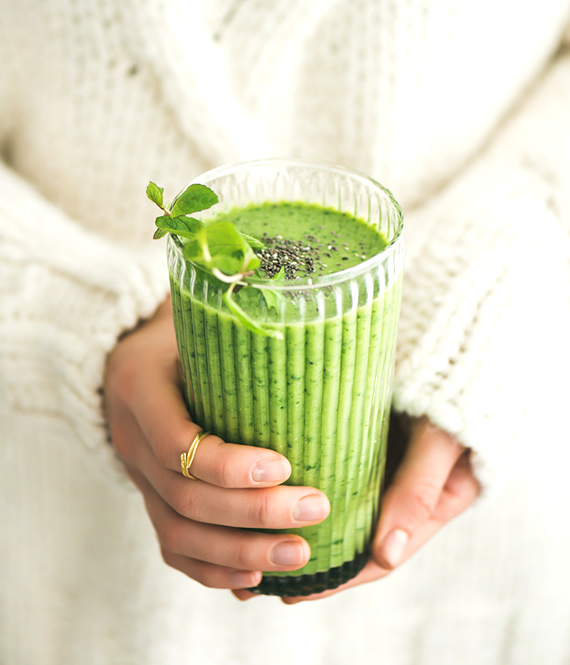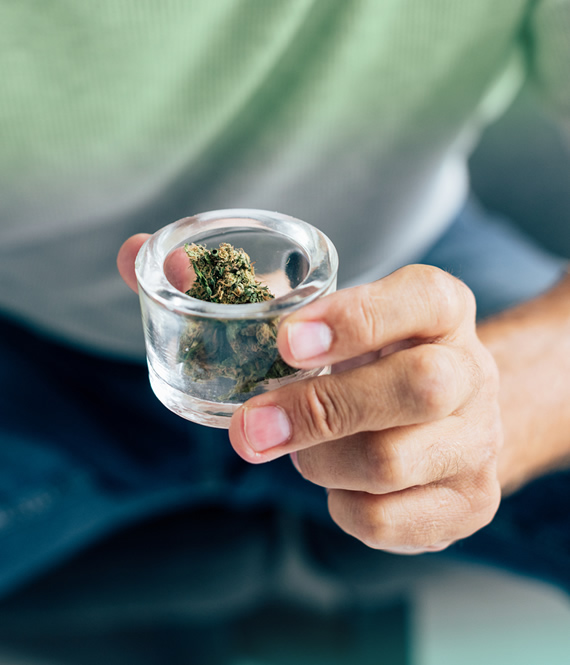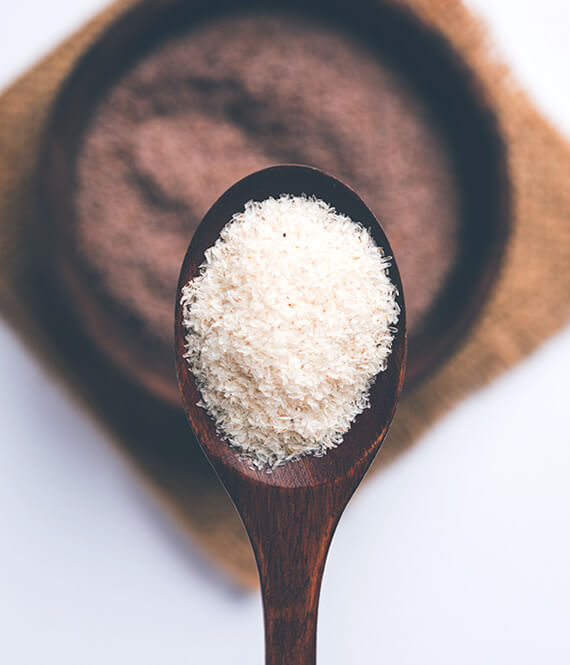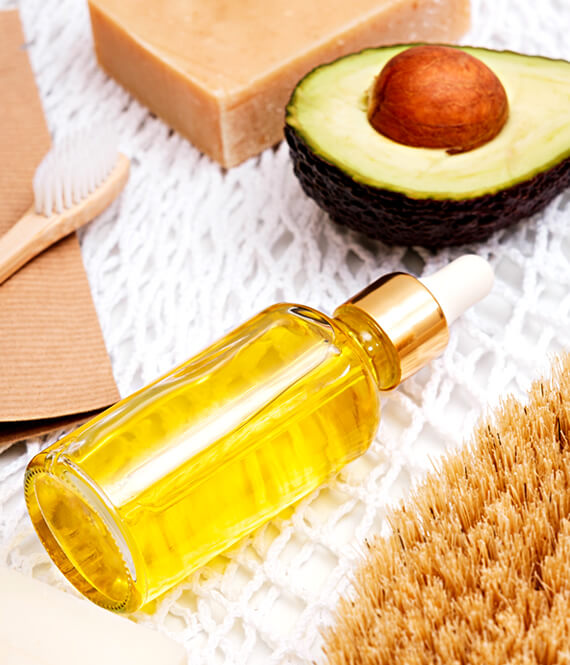
Orthorexia: “Healthy Eating Became My Obsession”
We recommend helpful products in our articles. Read our full disclosure here. The content on this website is not intended to be a substitute for professional advice, diagnosis, or treatment.

Eating the right way is essential for a healthy lifestyle, but when you take healthy eating to the extreme, it can become dangerous.
Do you obsess endlessly over what you put in your mouth?
Sometimes, too much of what’s beneficial becomes detrimental and your desire to eat “clean” may be so compulsive that it has become unhealthy for you.
Orthorexia: When Healthy Eating Becomes An Obsession
What is orthorexia?
Unlike other eating disorders, such as bulimia or anorexia, orthorexia nervosa (ON) or an obsession with healthy eating, is not yet recognized as an official diagnosis.
Despite this, the incidents of people with this problem appear to be increasing.
Orthorexics are typically more fixated on the quality of the food they eat and how to prepare it than on the number of calories it contains.
Ironically, the condition can lead to malnutrition.
What fuels an obsessive desire to “eat clean”?
The worldwide obesity epidemic has made people far more conscious of healthy eating today, but unfortunately, this can go too far.
The internet gives people unlimited access to information about nutrition – some of which is good and some which are not based on scientific evidence.
Eating clean is big business, and on social media, you can scroll endlessly through healthy recipes and inspirational messages.
Search a hashtag like #cleaneats, and you will find nearly seven million results!
A 2017 study by University College London suggests that Instagram use is linked to an increase in symptoms of orthorexia.
The findings of this study highlight the influence of social media on psychological wellbeing.
When social influencers post photos on Instagram of their extremely low-calorie meals, body composition, and workout routines, they have the attention of thousands of people.
Some people start their obsession with healthy eating when they face the pain of a loss or trauma.
They try to perfect their eating as a way to feel more in control of their lives.
Eventually, guidelines turn into rules, and breaking the rules becomes unacceptable.

Who is at risk to develop orthorexia?
Researchers at York University reviewed a number of studies examining the psychosocial risk factors that make a person vulnerable or more likely to develop orthorexia.
A-type personalities who set very high standards for themselves are at risk, as are those who have depression, obsessive-compulsive traits, and preoccupation with body image.
People on a strict eating schedule (who spend much time preparing meals) are also at greater risk as well as those with a previous eating disorder.
Jennifer Mills, a senior author of the study, believes the findings could help healthcare providers, family members, and others recognize that so-called “healthy” and “clean” eating can be unhealthy.
Orthorexia is like walking on a slippery slope
Your orthorexia may start quite innocently.
Perhaps you begin by cutting out sugar.
The next to go are all processed foods.
After all, everyone agrees you can’t go wrong with cutting these foods out of your diet.
You lose weight, receive compliments, and feel good.
You decide it can’t hurt to switch to all organic foods.
Wheat and dairy are next on the chopping block, followed by meat.
The problem is that you are gradually decreasing your caloric intake and the variety of foods you eat, which can lead to physical, mental, and social problems.
Meanwhile, as you eliminate one food after another, you feel a certain pride.
Your self-esteem may improve on a temporary basis, but it doesn’t last as it is tied to how perfectly you follow your pure diet.
You always feel there is something more you could be doing.

What are the symptoms of orthorexia?
The problem is that there’s a fine line between being health-conscious and health-obsessed.
The foods someone with orthorexia will avoid are often the same as those someone who wants to eat healthily will avoid – such as preservatives, sugar, non-organic, and genetically modified foods.
If you want to know whether you have gone too far when it comes to healthy eating, ask yourself the following questions:
• Do you spend an increasing amount of time and effort when it comes to planning what to eat, selecting ingredients, and preparing meals?
• Does your list of what feels safe to eat keep getting shorter while your list of what you can’t eat keeps getting longer?
• Do you turn down social invitations because you don’t want to eat foods you haven’t prepared yourself?
• Do you avoid going out to eat with friends at restaurants because you’re afraid you won’t find the food you can eat on the menu?
If your answer is “yes” to these questions, you could be balancing on the line of orthorexia.
Some people are able to cut out some foods successfully and still have a balanced diet.
Others simply aren’t able to draw the line.
What should you do if you feel that you could have orthorexia?
Recognizing that you need help is the first step towards recovery from orthorexia or any eating disorder, really.
Try challenging yourself to eat one of the foods you consider unsafe.
You may feel emotionally conflicted, but it is possible to slowly add one food after another back into your diet.
If you can’t do this, you will need to seek out professional help.
Therapy can help you to understand why you want perfection and how your self-esteem has become coupled with the purity of your diet.
When it comes to Instagram and other social media platforms, you decide what media to take in.
If you’re following those who set unrealistic expectations, it is probably best to unfollow them.
As much as Instagram can fuel your obsession with healthy eating, it can also help you to recover.
There are no solid statistics to reveal how many people have orthorexia, but an Instagram search reveals nearly 80,000 posts under the hashtag #orthorexia recovery.
A final word
If you find your obsession with healthy eating is crowding out your other activities and interests and destroying your relationships, you could have reached that tipping point where it has taken on a life of its own.
It is no longer serving your healthy goals.
Living a healthy life should never mean sacrificing everything that makes your life worth living… If you feel that you may have orthorexia, don’t wait.
Rethink your eating, talk to someone you trust, or start therapy – it will make you much healthier than an absolutely “clean” diet.
"We love to research problems, examine studies, analyze solutions, and share with you ideas that make life healthier. You can learn about us and our editorial standards here. Have suggestions or feedback to share? Send us a message!."













Leave a Comment